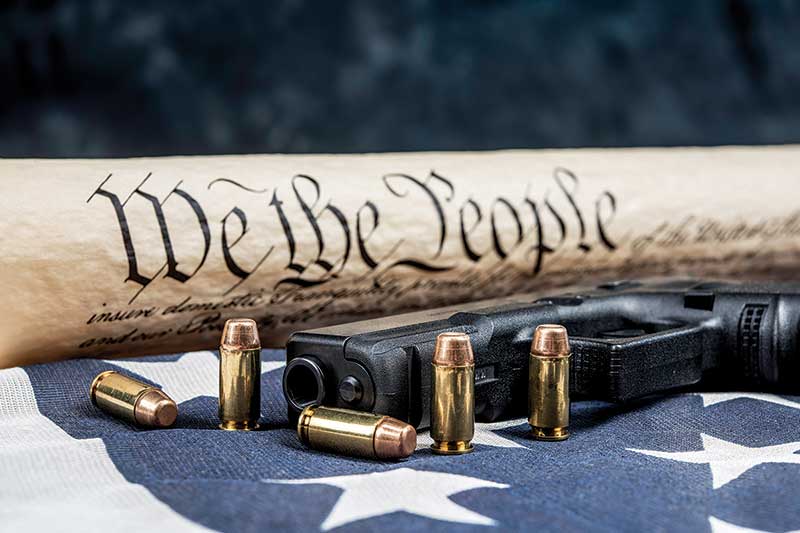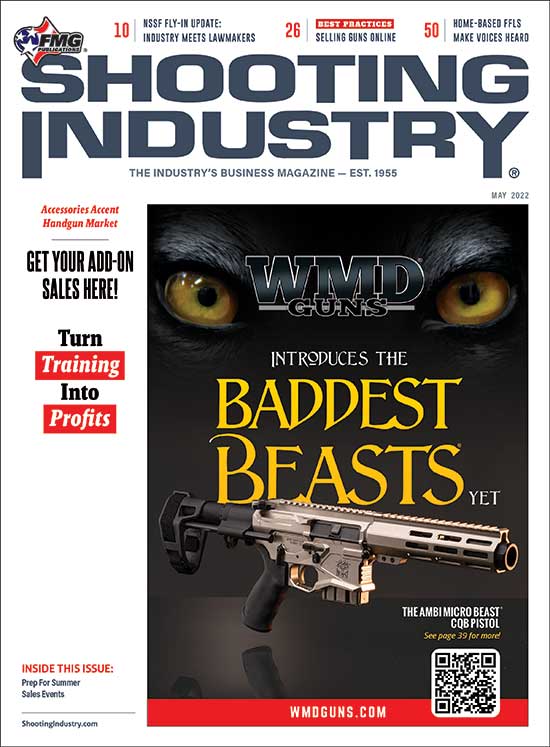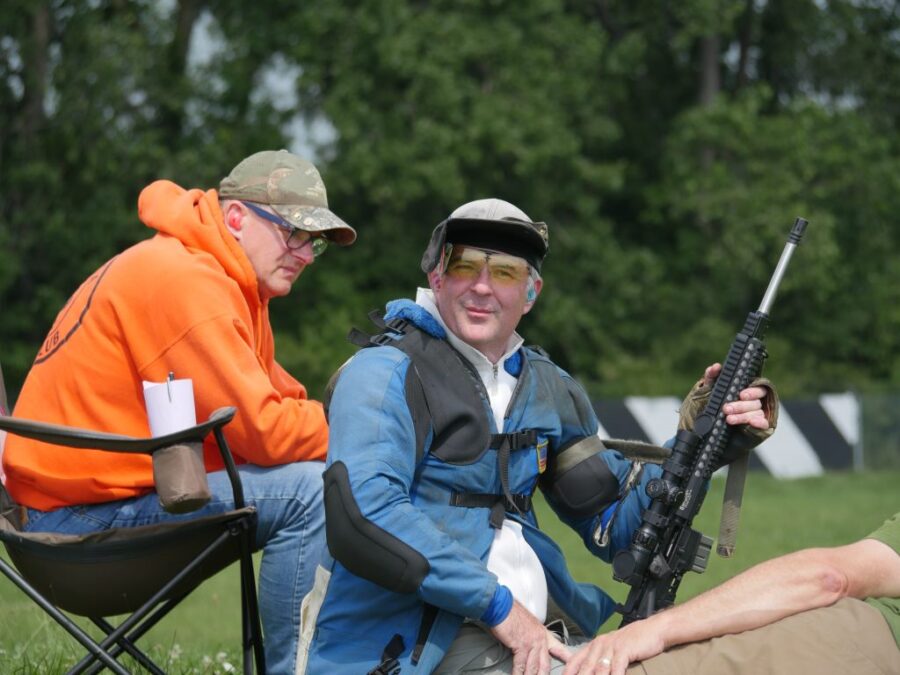“Pariah” Letter
Strikes A Nerve
It all started with an email — in the Jan. 2022 Letters To The Editor column, we ran a note from home-based FFL Matthew Sims, owner of Red Roo Defense, who questioned the policy of some wholesalers that require a storefront operation to open an account.
In his letter, Sims inquired, “Someone should do a story on why the home-based dealer is treated like a pariah. Does our money not spend as well, or is it just because the wholesalers are afraid we’re going to make too much money by not having enough overhead? Or is it simply collusion — the brick-and-mortar dealers just don’t want the competition and they have managed to convince the distributors we’re not worthy of their business?”
In my response to Sims, I affirmed Shooting Industry’s target audience will continue to be the storefront dealer first — but we at SI recognize business has evolved, especially over the past two years. This exchange has generated an avalanche of reader mail, furthered by coverage in SI’s weekly jumpstart email program, Dealer Advantage.
Frankly, this topic has produced the highest levels of engagement I’ve seen in seven years as Shooting Industry editor. I’ve received everything from one-line emails to several totaling more than 1,000 words each — clearly, there are a lot of folks very passionate about this issue.
Though the storefront dealer/home-based FFL divide will likely be an enduring one, there are benefits to both models of doing business. And, competition certainly encourages businesses to hone their edge. Here’s a small sample size of the emails I’ve received on this subject.
Same Objective, Different Means
There will always be some home-based FFLs that exist to transfer firearms for family and friends, but the majority I’ve heard from have similar ambitions to their brick-and-mortar counterparts: to serve their communities.
Robert Hood, owner of Robert’s Gunsmithing in Redmond, Ore., does mostly gunsmithing and transfers for customers and doesn’t have plans to open a physical storefront with high costs associated with rent and insurance. He is, however, actively involved in his area — which drives business.
“I expect that shortly I will close my small store, stop carrying inventory and switch to setting up a website and doing transfers if I choose to even continue to remain in business.”
Richard Shearer, Owner RWS Arms, Apollo, Pa.
“Most of my customers are gunsmith related. I don’t advertise, but I do volunteer at our local range, which does funnel business my way,” he said.
In 2020, Rodney Ashmore turned a lifetime hobby into a business, opening home-based Kodiak Firearms in Avon, Ind. Ashmore is deaf and has developed close ties with deaf customers in his community.
“Kodiak Firearms is my opportunity to create a business that serves more than just as a personal brand and to build a name for myself, but will also establish a legacy through serving the passionate community I’ve been a part of for so long,” he said. “But I also suffer with disadvantages — locked out from distribution, limited accessibility and cost of shipping.”
Sam Summey, owner of B&S Gunsmithing in Flat Rock, N.C., noted five brick-and-mortar stores recently closed in his area — which, oddly enough, has actually negatively impacted his business.
“I truly miss these businesses because my ‘rogue business’ offers full-service gunsmithing, which the other (and most) gun stores in my area did not. My role was supportive to their businesses,” he said.
Summey makes a concerted effort to be involved in his community.
“My small businesses has the time to work with local gun clubs that have junior marksmanship programs, NRA Foundation and other charitable organizations like 4-H. I’m sure there are many brick-and-mortar businesses that do the same to support the shooting industry.”
The Grass Isn’t Always Greener
Much to the chagrin of nearly every brick-and-mortar dealer, home-based FFLs — in general — have taken business from storefronts with the promise of a lower FFL transfer fee. As the saying goes, however, the grass isn’t always greener on the other side. Some of the home-based dealers have lamented they lose business to storefront FFLs.
“Being ‘locked out’ of some of the major distributors and manufacturers puts us at a serious disadvantage to the brick-and-mortar stores. We can’t compete with pricing or volume like the stores that can order from the larger distributors, so we lose business to them,” said Steve Golla, co-owner of Twin Oaks Custom Gunsmithing in Tidioute, Pa.
Lynn Gabehart has run a home-based operation for 30 years, LG Sports Systems & Firearms Training in Montrose, Colo., but is looking to close down later this year in light of the storefront requirement to do business with most wholesalers and manufacturers.
“It’s been a long road; I never got rich but enjoyed the work. This year, I’m calling it quits because of the supply chain and the big business rules that are killing the little guy. If someone is thinking about getting an FFL forget it — it’s not worth the crap you have to go through,” he said.
Greg Downs, president of home-based Family Firearms Safety in Overland Park, Kan., has been in business for 10 years and offered each way of doing business — storefront vs. online — has intrinsic benefits. It’s up to the operator to take advantage of them.
“Those store owners who figure out what their advantages are — in the customer’s eyes — and figure out a way to exploit those advantages can be very successful.”
Greg Downs, President Family Firearms Safety, Overland Park, Kan.
“The reality of our industry is a large portion of all sales is initiated online. This means unless the retail store has cultivated a significant (and easily found) online presence and an aggressive pricing strategy, the customer won’t even know about the brick-and-mortar store until the checkout process when they need a transfer FFL. At that point, the home-based FFL has an advantage because we’re willing and able to provide better customer service and price.”
Downs continued: “Brick-and-mortar stores do have some advantages, though. Those store owners who figure out what their advantages are — in the customer’s eyes — and figure out a way to exploit those advantages can be very successful.”
The Storefront’s Perspective
Storefront dealers have weighed in here, as well.
“I’ve read your articles, and can see the home-based stores’ point. They want to have the cake and eat it, too,” said Bill McGuire, owner of Interlaken Guns in Interlaken, N.Y. “You need to see the point of the brick-and-mortar stores: We have a lot of overhead expenses to operate a store. It’s unfair to stock inventory that customers can handle, and then run down to a home-based FFL to buy at a discounted price because they have no inventory and less expenses. We wouldn’t have the industry we have without the brick-and-mortar stores.”
Richard Shearer, owner of RWS Arms in Apollo, Pa., started out as a “kitchen table dealer” more than 40 years ago, but one exchange after he opened his store prompted a decision on who he bought from.
“I can still remember having individuals examine inventory, ask questions about the product and not make a purchase. A defining experience for me was when one such individual — after examining a handgun and getting his questions answered — commented to me my price was reasonable but he had a friend that had an FFL and would order it for him. That was the day I stopped any purchasing from wholesalers who did not require a brick-and-mortar store.”
However, as business practices have changed due to the existence of the internet, Shearer is taking a thorough look at whether he’ll continue as a storefront operation today.
“I expect that shortly I will close my small store, stop carrying inventory and switch to setting up a website and doing transfers if I choose to even continue to remain in business. Last year, I looked at putting a major and high-priced line of optics in inventory.
I met with the rep for the line in my store. After obtaining my wholesale pricing and then cross checking prices, I found major online optics sellers making sales to the public for less than my wholesale costs. So, the gain? A lower price. The loss? Hands on examination of a very costly product. My conclusion? Probably close the retail store and join the new way of doing business,” he said.
Parting Thoughts
As noted above, the sheer breadth and depth of responses that have poured in over the past couple months shows this is a hot-topic issue. I want to reiterate Shooting Industry’s commitment to the storefront dealer. That said, we endeavor to equip dealers — regardless of their business model — in their efforts to grow the industry. It’s a win-win if we can, collectively, welcome and activate lifelong sportsmen and women.
Have a comment to share? Send me a note directly: editor@shootingindustry.com. I welcome and appreciate feedback from readers — it helps us tailor content accordingly.
A Word On The Fly-In
In this month’s Industry News section, we covered the return of the NSSF’s Congressional Fly-In to Capitol Hill — giving industry executives the opportunity to meet with a significant amount of Congressional members and their staffs in person for the first time since 2019.
This was my fifth time attending NSSF’s Fly-In in person (last year’s was done virtually) and it’s quite eye-opening to see, firsthand, the various ways our industry continues to be targeted by financial institutions and Big Tech. (A case in point: When one Fly-In attendee asked the room of 50 industry professionals if they, too, had experienced financial discrimination based on being a part of the firearms industry, all hands were raised.)
Having the opportunity for face-to-face meetings with members of Congress is invaluable — as they personify the challenges thousands of industry businesses face each day. Whether your business is a small operation with a handful of employees or a multinational enterprise, I highly recommend attending events like this if you ever have the opportunity. The next NSSF Congressional Fly-In is scheduled for April 18–19, 2023.






